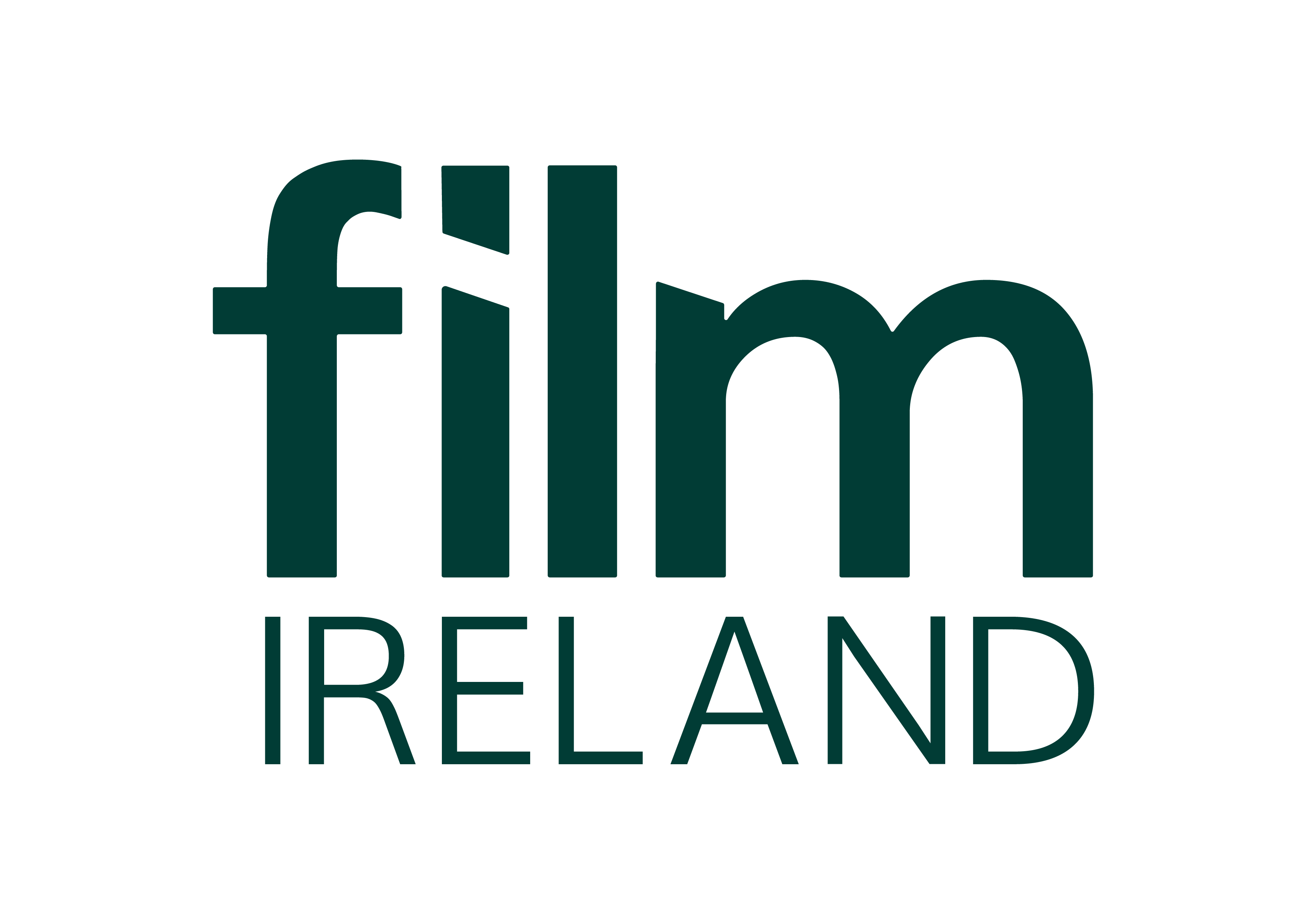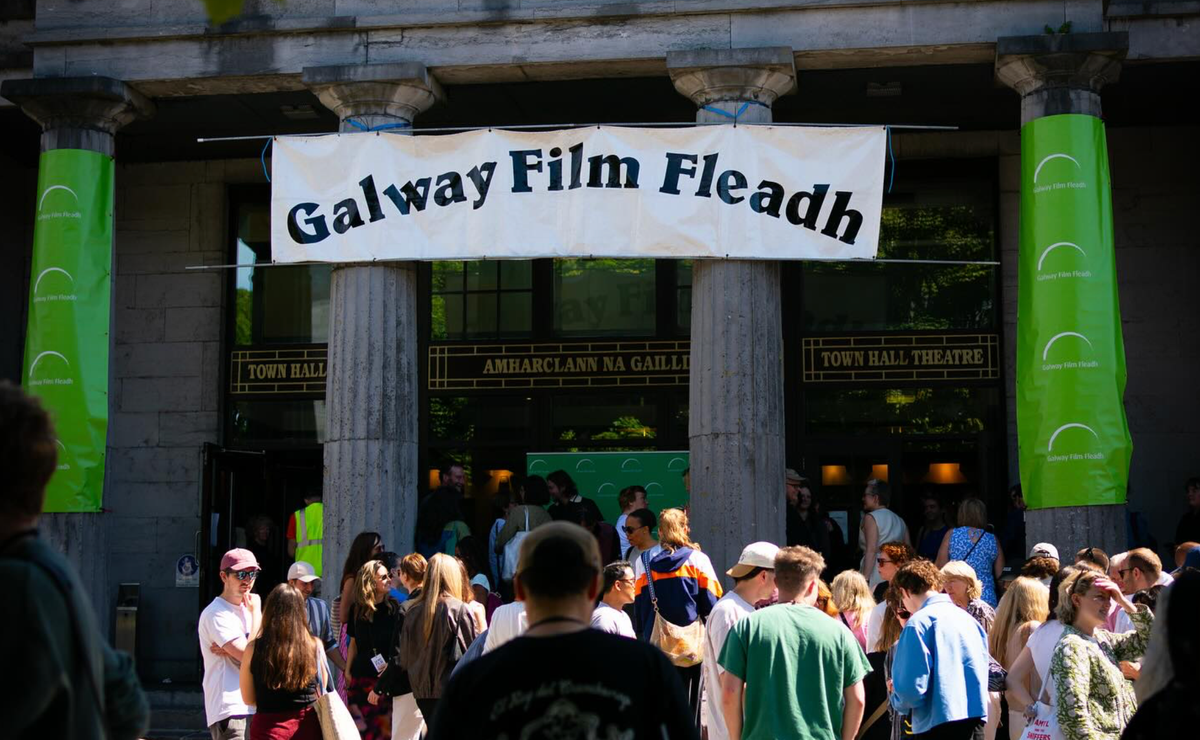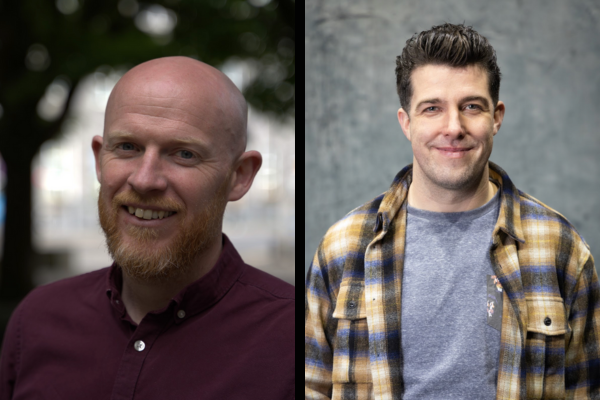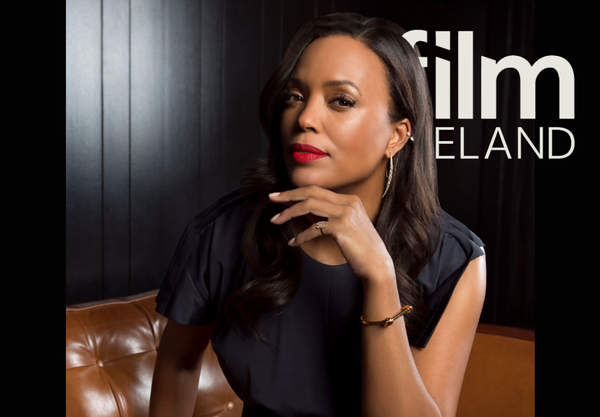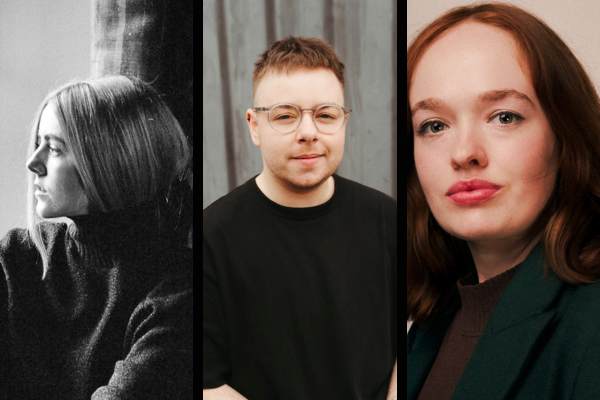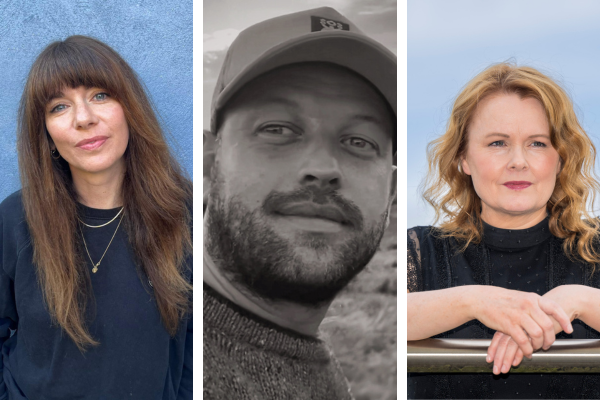From Irish language drama to Berlinale gems, in this article, contributor and filmmaker Mick Jordan gives his top films of Galway Film Fleadh 2025.
Every July filmmakers and film fans from all over the globe in some instances, make the pilgrimage to the Galway Film Fleadh, an international film festival now in its 37th year. Over the years, alongside the screenings and premieres, it has grown and expanded its remit to include the bustling Galway Film Fair. This industry event includes an annual pitching competition, marketplace, masterclasses and workshops, and an industry-wide conference known as the Fleadh Forum. The festival is thereby a chance for filmmakers to sell their existing films or pitch their upcoming ones to production companies, funders and potential collaborators.
This year had one rather bittersweet element, as the Fleadh temporarily reopened the Pálás cinema for the duration of the festival. The Pálás had sadly been closed since February due to “financial losses”. One of two main screening venues for the event, this was an opportunity to see a vital cultural hub in the Irish creative landscape before it is likely to be gone forever. It was also an opportunity for me to see three great films at the three screens of the cinema.
The Pálás Picks
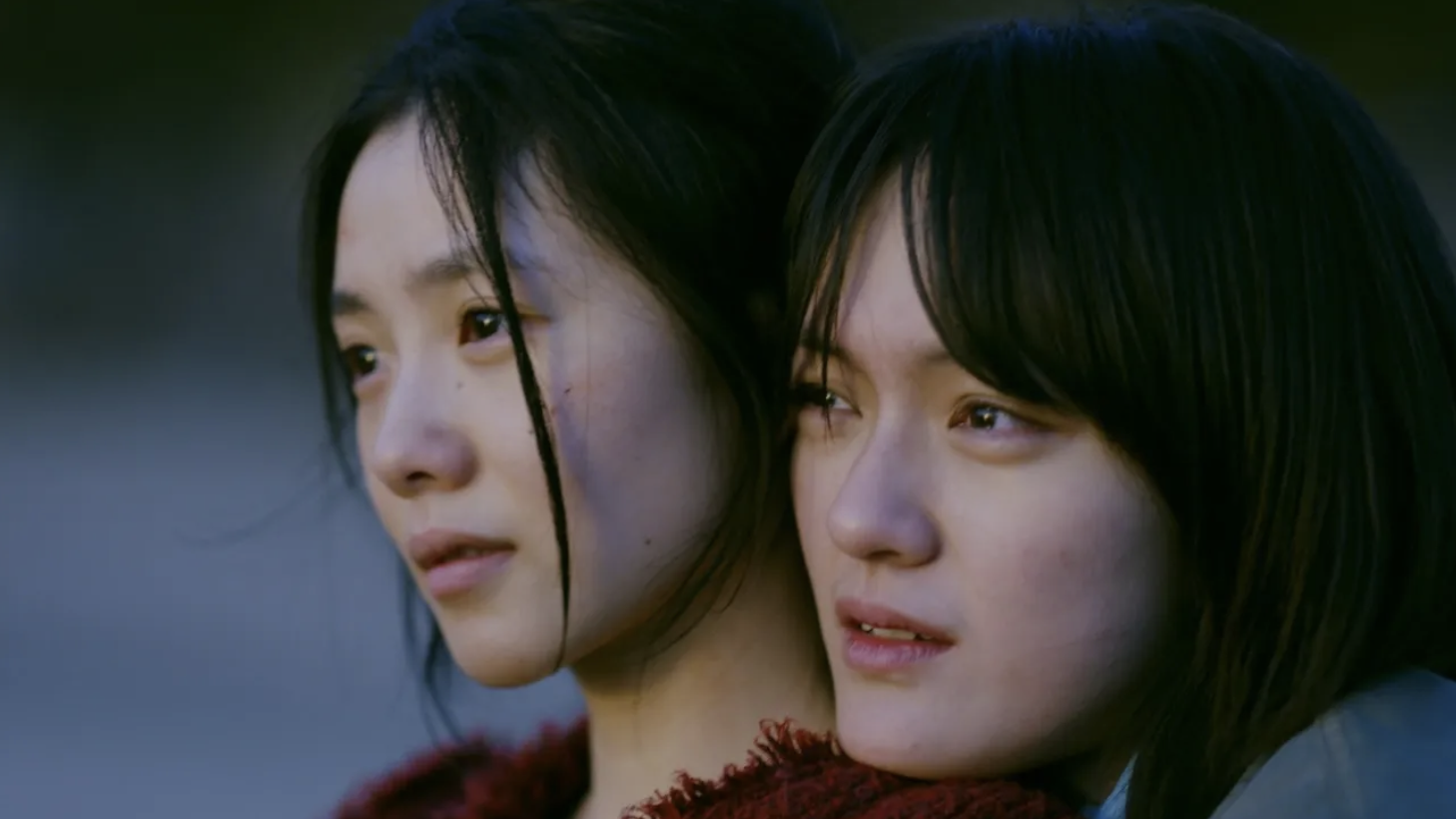
Girls on Wire
First off in Screen 3 was Girls on Wire, directed by Vivian Qu, this is a Chinese film that premiered at Berlinale earlier this year. The ‘girls’ of the title are two cousins who have been raised as sisters in a family torn apart by drugs. The ‘wire’ is the cable that plunges and pulls one of them into and out of a filthy lake as she performs increasingly hazardous stunts for a sadistic filmmaker. Fang Di (Vicky Chen), the older of the pair, has left their small village to do this dangerous job to clear the family’s debts. When Tian Tian (Haocun Liu) kills a drug dealer, she runs to her cousin for help, the local mafia in pursuit.
An exciting adventure story, this film packed quite an emotional punch. Every now and then there are quick flashbacks to the girls’ childhood, showing how the happier times descended into the drug-induced misery of the later years. The determination of both women to fight back is infectious and brings the audience with them along the way. Occasionally the intense drama is alleviated by some very funny moments. At one point, the mob foot soldiers sent to find Fang Di pretend to be extras in a film she is working on. They hide amongst a crowd playing victims of a massive explosion and forget to collapse and die at every take. As a result, there are several takes.
Soft Leaves
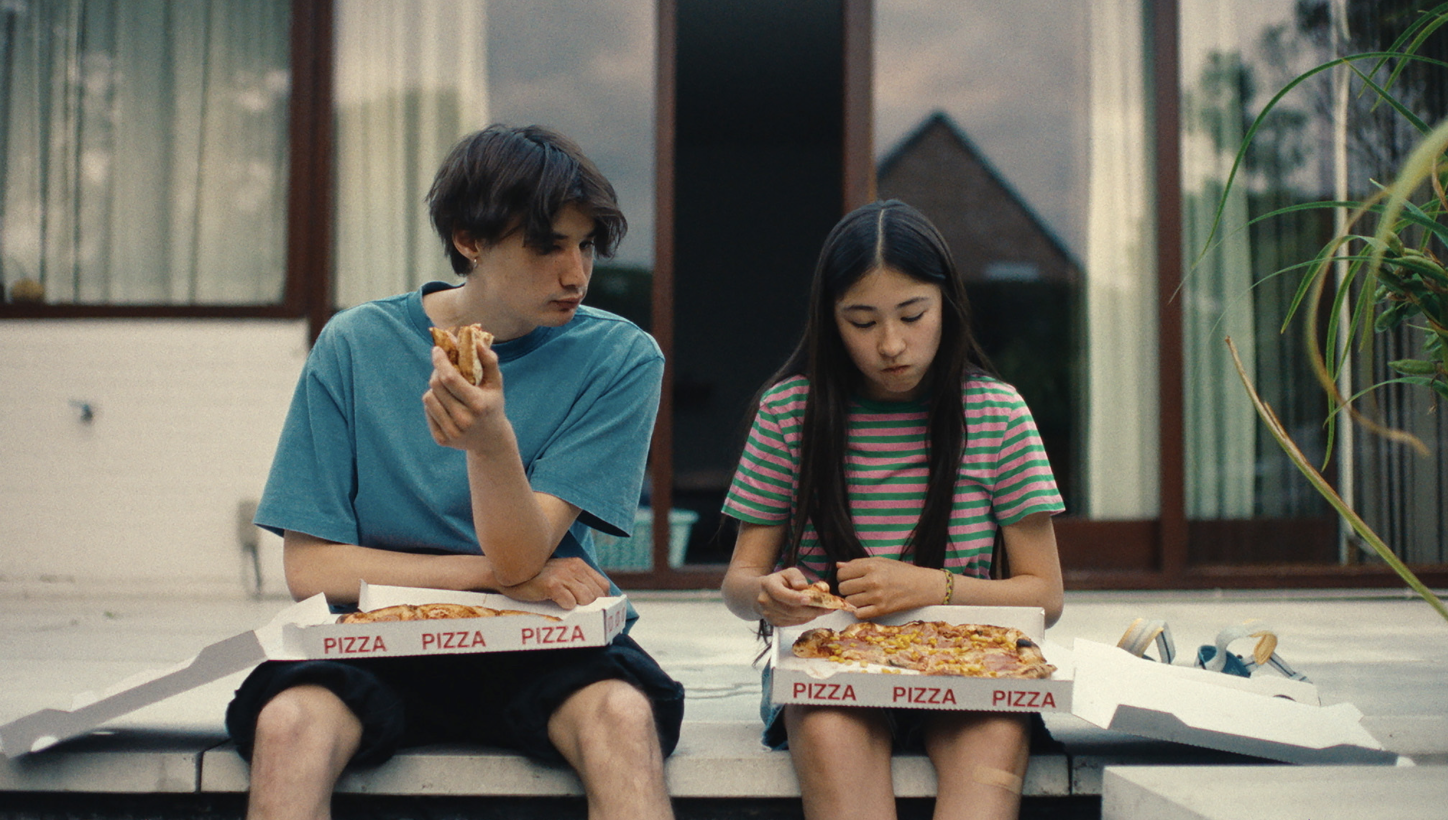
Next up (at Screen 1) Soft Leaves, the debut feature from young Belgian-Japanese filmmaker Miwako van Weyenberg, who provided a brief video introduction for the Fleadh. This is the story of Yuna (Lill Bertoloot), an 11-year-old girl living in Belgium with her father Julien (Geert Van Rampleberg). Her world is turned upside down when Julien is seriously injured in an accident, leaving him in a coma. Yuna’s mother Aika (Masako Tomita) comes from Japan to look after her. Mother and daughter know each other primarily through Skype calls, and Yuna finds it difficult to connect in person. Added to that, Aika has arrived with Yuna’s much younger half-sister Otaka (Sara Hamasaki), and Yuna longs ever more for the simple life she had enjoyed with her father.
For all the tension and trauma of the situation, this is a gentle and non-judgemental film. The family dynamics play out as you would expect them to, making the viewer feel involved in this family. Yuna’s mother wants her to come back with her to Japan, and you can fully understand why, just as you can appreciate why Yuna wants to stay. This neutral approach gives the audience a real vested interest throughout the film, in what happens next.
Cutting Through Rocks
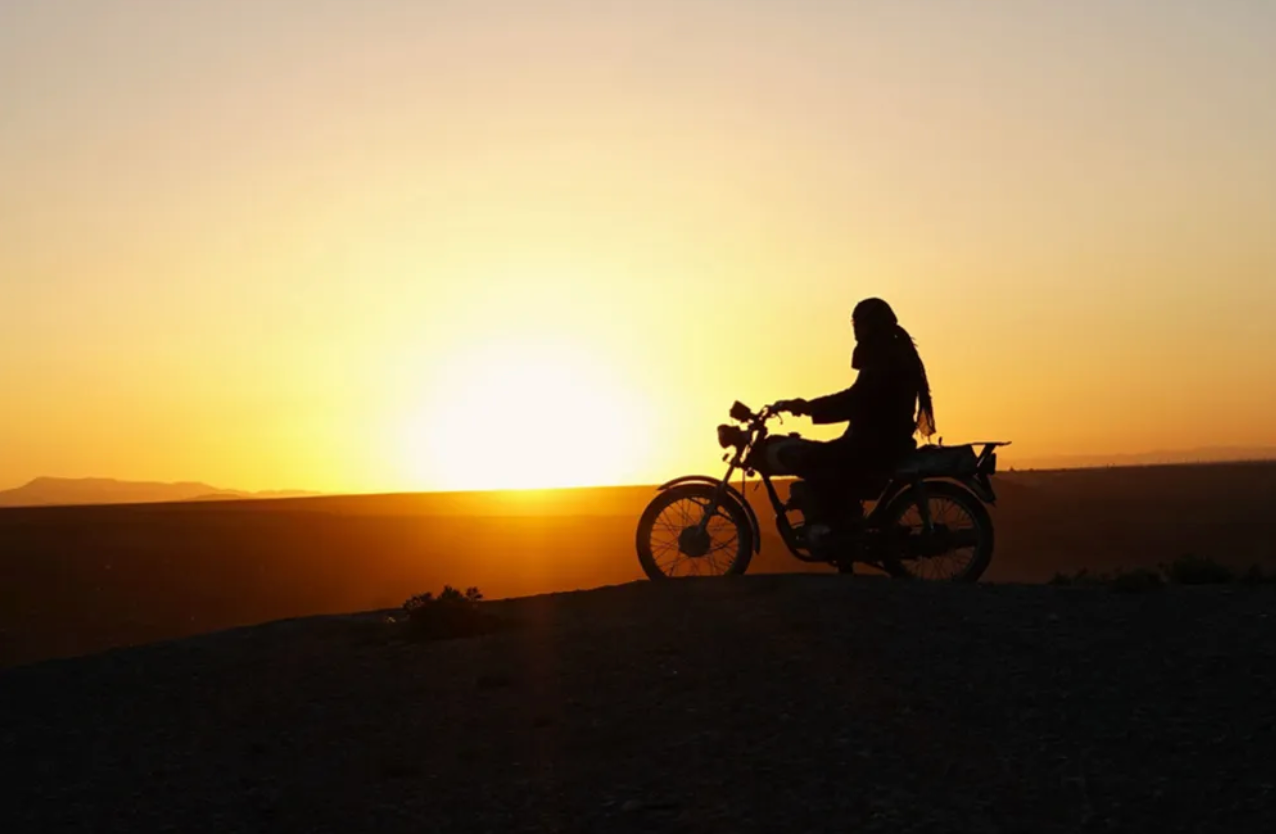
At Screen 2 of the Pálás was Cutting Through Rocks, a documentary co-directed by Sara Khaki and Mohammadreza Eyni. Sarah Shahverdi is a councilwoman fighting for equal rights for the women of her deeply conservative, patriarchal village. When you consider that this particular deeply conservative, patriarchal village is in Iran, you see just what she is up against. In one campaign she works to persuade the men of the village to allow their wives to be co-owners of their own homes. The fact that she succeeds is one of the more inspiring moments of the film. It is tempered, however, by seeing the young girls she has tried to encourage into further education ending up as child brides, just as she herself once did.
Sarah escaped and divorced her much older husband, but she is still constantly being told that she should marry again and stop this silly activist nonsense. Then she can live a normal, happy life. The film balances all this with her victories, plus her sense of humour and her sheer core of inner strength. It won Best World Cinema Documentary at Sundance and very much so deserved to. Ideally, this will make sure it's viewed by a wider audience.
The Town Hall Theatre Picks
The Town Hall Theatre is the central hub and box office of the Fleadh. This is where the biggest premieres take place, and there are often long lines of people waiting hopefully to get last-minute cancellations for sold-out shows.
Stolen Lives
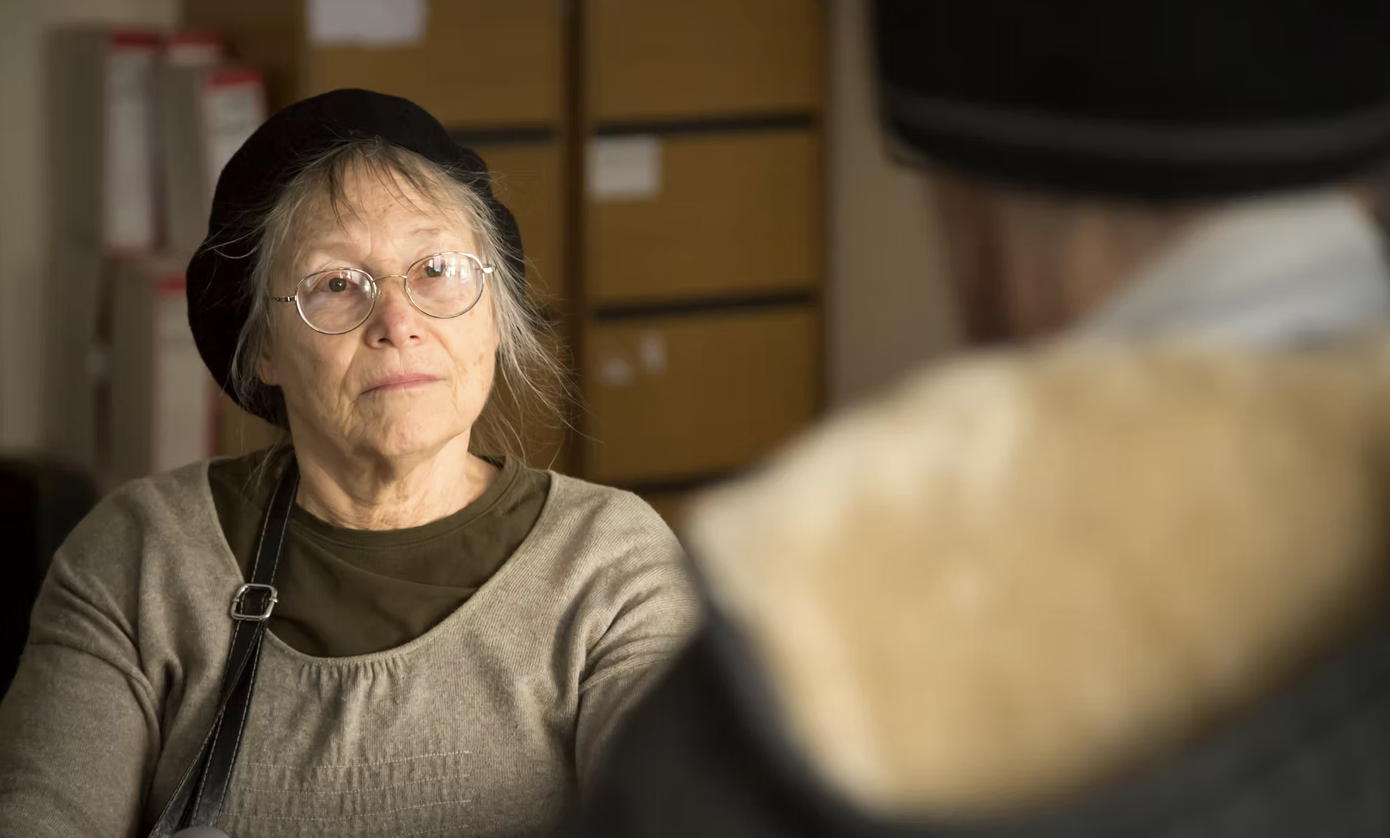
Directed by Mark McLoughlin, this documentary tells the story of Sunny Jacobs and Peter Pringle, who were both sentenced to death for crimes they did not commit, on opposite sides of the world. They were each eventually cleared and, in the US, Sunny set up a centre to help exonerated prisoners on their release from prison. When she came to Ireland to promote her scheme, she met and fell in love with Peter. They married and together set up an Irish branch of the Sunny Healing Centre in Galway.
This was a film that started out as a documentary about a husband and wife and their individual fights for justice, and ended up as an epitaph for them both. Peter died towards the end of filming, and we see Sunny trying to cope with his loss. She ends the film saying she needs to start a new chapter in her life. In fact, she had been scheduled to attend the festival, but tragically she and her carer Kevin Kelly died in a house fire in June. A friend of Kevin Kelly’s was in the audience and paid an emotional tribute to him following the screening. Even without the foreknowledge of what happened afterwards, this was still a deeply moving biography. Sunny and Peter were clearly a devoted couple, and this film truly is a celebration of that.
Báite
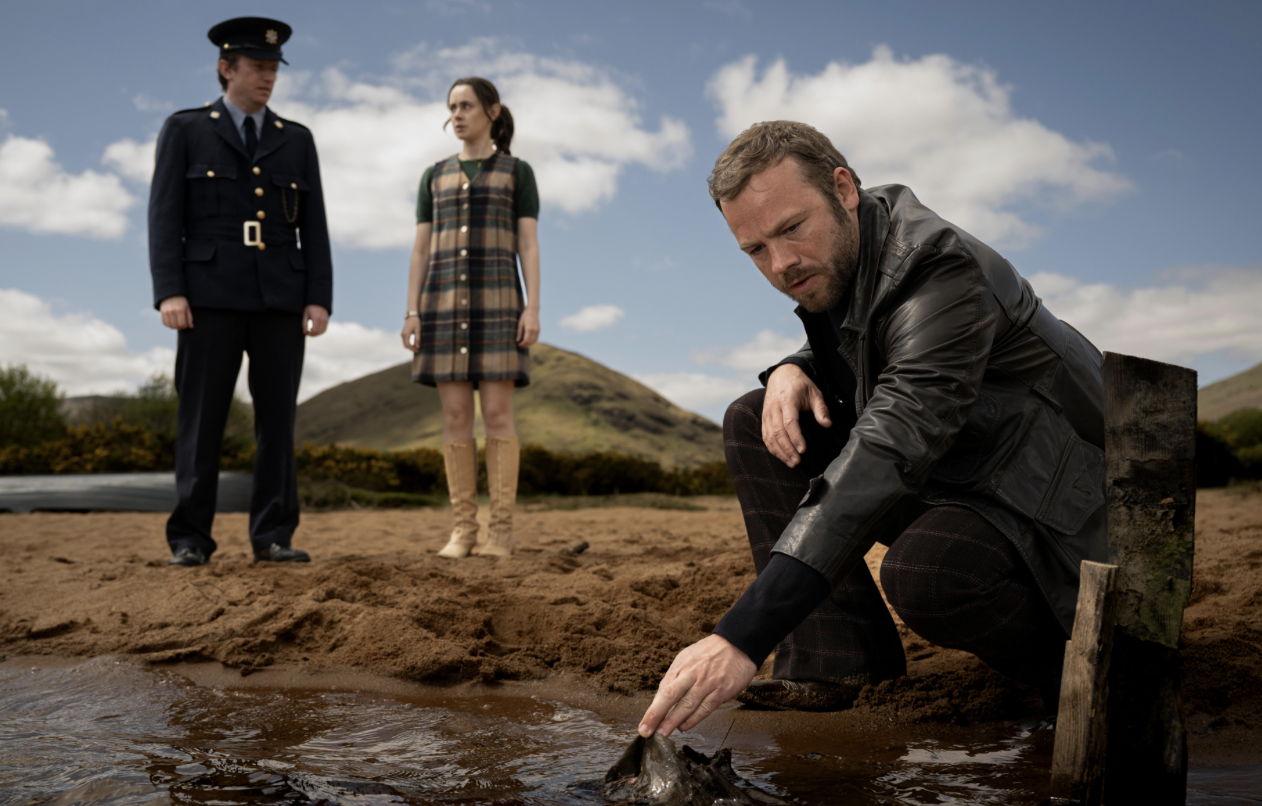
Directed by Ruán Magan and adapted by Sheena Lambert from her novel The Lake. Set in a small Galway village in 1975, the story kicks off when a body floats up from the nearby lake. This lake had been artificially created nearly thirty years earlier over the town that was originally there. Everybody assumes it is a body from the graveyard, left behind by mistake when all the others were moved to a new location. But then Detective Sergeant Frank Ryan (Moe Dunford) arrives from Dublin to investigate when police find signs of foul play. Peggy Casey (Eleanor O’Brien) runs the local pub and is desperately trying to hold onto it against her siblings’ wishes; they all want to sell up. The scandal of a potential murder right in the middle of tourist season is not helping Peggy’s cause.
The film is a gripping crime drama that also manages to be a fascinating portrait of a very different era. It is beautiful to look at, races along at a cracking pace, and the performances are natural and convincing. The characters feel like real people with full life stories behind them, some of which start to emerge as the story unfolds. It is full-on entertainment from start to finish with just the right amount of everything: humour, drama, tragedy, and an All-Ireland final where everyone gets to cheer for Not-Dublin.
Báite is the latest in a consistent line of excellent Irish-language films produced of late. Many of these have premiered at the Galway Film Fleadh, which is appropriate given the proximity and creative connection to Gaeltacht and Tg4. These films at the Town Hall were introduced and discussed afterwards in conversations held in both English and as Gaeilge.
The safeguarding of our language is inseparable from the heritage of our storytelling. It would also be a shame if an event embedded with such a cultural legacy turned out to be the last time audiences get to experience film in the Pálás cinema. This is a wonderfully quirky venue with stairs and corridors seemingly everywhere, leading from one part to another. The screens are all well laid out and comfortable, making for very pleasant viewing. The building itself had “Save Pálás” notices around the place, and there is a concerted effort by a local group to try to keep the cinema in operation as a cultural space. This group includes, amongst others, the founder of the Galway Film Fleadh, Lelia Doolan.
Hopefully the great success of this year’s festival and its continued expansion will be a boost to that campaign, and that the 38th Fleadh will take place in a revitalised Pálás cinema.
Galway Film Fleadh is an Oscar Qualifying six-day international film festival taking place every July on the edge of Europe in the West Coast of Ireland. Submit your film to screen there in 2026 here.
